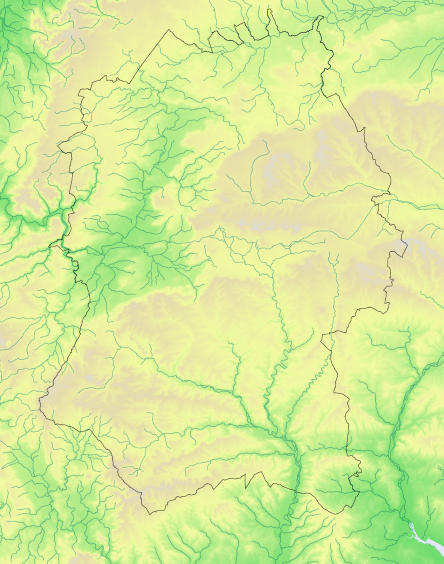Sedge Warbler Acrocephalus schoenobaenus
Breeding distribution change
Common summer visitor, breeds much of Europe, winters Africa
Atlas species lists
- Breeding distribution 1995–2000
- Summer abundance 1995–2000
- Winter distribution 1995–2000
- Winter abundance 1995–2000
- Breeding distribution 2007–2012
- Summer abundance 2007–2012
- Winter distribution 2007–2012
- Winter abundance 2007–2012
- Breeding distribution change
- Summer abundance change
- Winter distribution change
- Winter abundance change
More Sedge Warbler maps
- Breeding distribution 1995–2000
- Summer abundance 1995–2000
- Winter distribution 1995–2000
- Winter abundance 1995–2000
- Breeding distribution 2007–2012
- Summer abundance 2007–2012
- Winter distribution 2007–2012
- Winter abundance 2007–2012
- Breeding distribution change
- Summer abundance change
- Winter distribution change
- Winter abundance change
More maps for this atlas
Map explanation
This map shows where changes occurred in the breeding season distribution of the species in Wiltshire between 1995-2000 and 2007-2012, as revealed by the fieldwork for Birds of Wiltshire (Wiltshire Ornithological Society 2007) and the shared fieldwork for Bird Atlas 2007-2011 (BTO 2013) and for Wiltshire Tetrad Atlas 2007-2012.
Gains and improvements
Status
Nos tetrads

Absent to present
45
5%

Present to breeding
14
2%

Absent to breeding
19
2%
No change
Status
Nos tetrads

Present in both
16
2%

Breeding in both
63
7%
Losses and declines
Status
Nos tetrads

Present to absent
40
4%

Breeding to present
30
3%

Breeding to absent
27
3%
Sedge Warblers breed throughout Europe except in the Mediterranean region, including northern Fenno-Scandia and North Russia, then extending to western Siberia, parts of the Balkans and Asia Minor. They winter in sub-Saharan Africa, from Senegal to Ethiopia then south to South Africa.
They were widespread and common in Britain in the 19th century, and there was little change in their status in the first two-thirds of the 20th. From the late 1960s however there have been marked fluctuations linked to conditions in the Sahel. A severe drought there in winter 1983/84 led to high mortality such that fewer than 5% of adults returned to their breeding sites in Britain the following summer. Numbers continued low into the 1990s. There was a 12% contraction in breeding range between the 1968-72 Breeding Atlas and the 1988-91 Breeding Atlas , but this was then followed by a 17% increase between 1991 and Bird Atlas 2007-2011 giving a net increase of 3% over the period as a whole.
In Wiltshire, numbers remained roughly stable throughout the last third of the 20th century but thinned out a bit during the first decade of the 21st century. Birds of Wiltshire recorded them in 190 tetrads, with breeding in 120. Bird Atlas 2007-2011 found them in 187 tetrads with breeding in 106.
References
The following references are used throughout these species’ accounts, in the abbreviated form given in quotation marks:
“1968-72 Breeding Atlas” – Sharrack, J.T.R. 1976: The Atlas of Breeding Birds in Britain and Ireland. T. & A. Poyser
“1981-84 Winter Atlas” – Lack, P.C. 1986: The Atlas of Wintering Birds in Britain and Ireland. T. & A. Poyser
“1988-91 Breeding Atlas” – Gibbons, D.W., Reid, J.B. & Chapman, R.A. 1993: The New Atlas of Breeding Birds in Britain and Ireland 1988-91. T. & A. Poyser
“Birds of Wiltshire” – Ferguson-Lees, I.J. et al. 2007: Birds of Wiltshire, published by the tetrad atlas group of the Wiltshire Ornithological Society after mapping fieldwork 1995-2000. Wiltshire Ornithological Society.
“Bird Atlas 2007-2011”-– Balmer, D.E., Gillings, S., Caffrey, B.J., Swann, R.L., Downie, I.S. and Fuller, R.J. 2013: The Breeding and Wintering Birds of Britain and Ireland. BTO Books.
“WTA2” – ("Wiltshire Tetrad Atlas 2 ") the present electronic publication, bringing together the Wiltshire data from “Birds of Wiltshire” and “Bird Atlas 2007-11”, together with data from further fieldwork carried out in 2011 and 2012.
"Hobby" - the annual bird report of the Wiltshire Ornithological Society.

